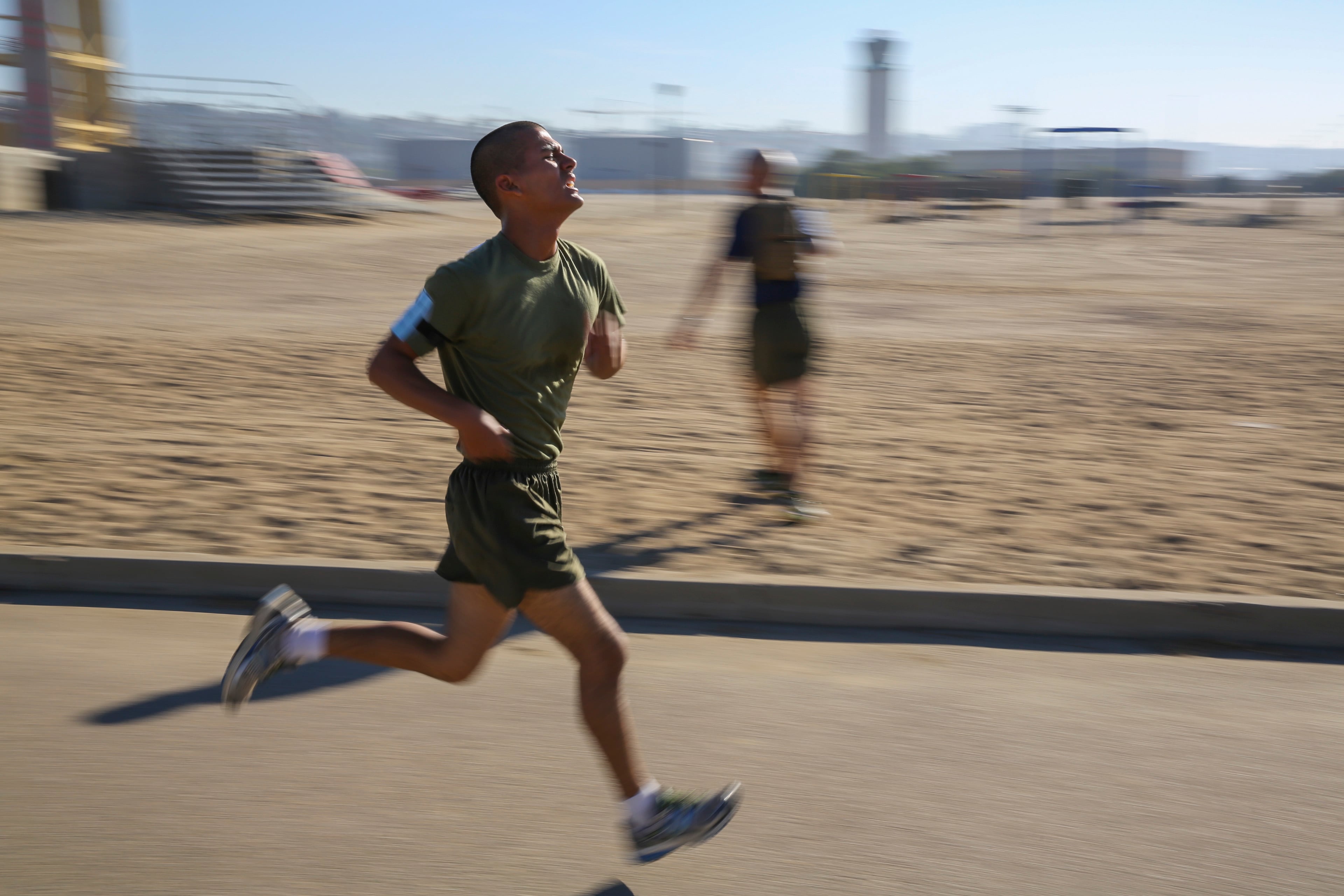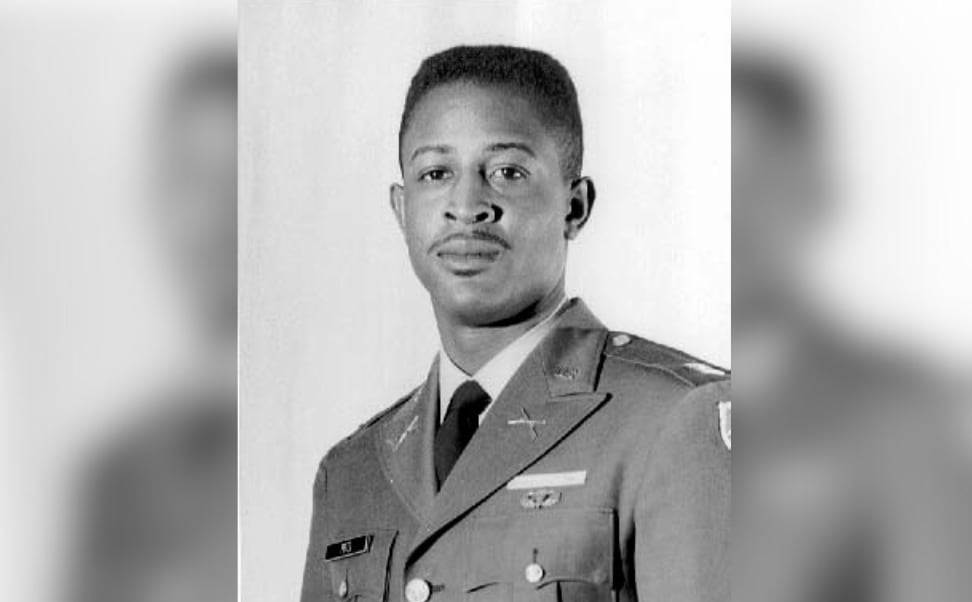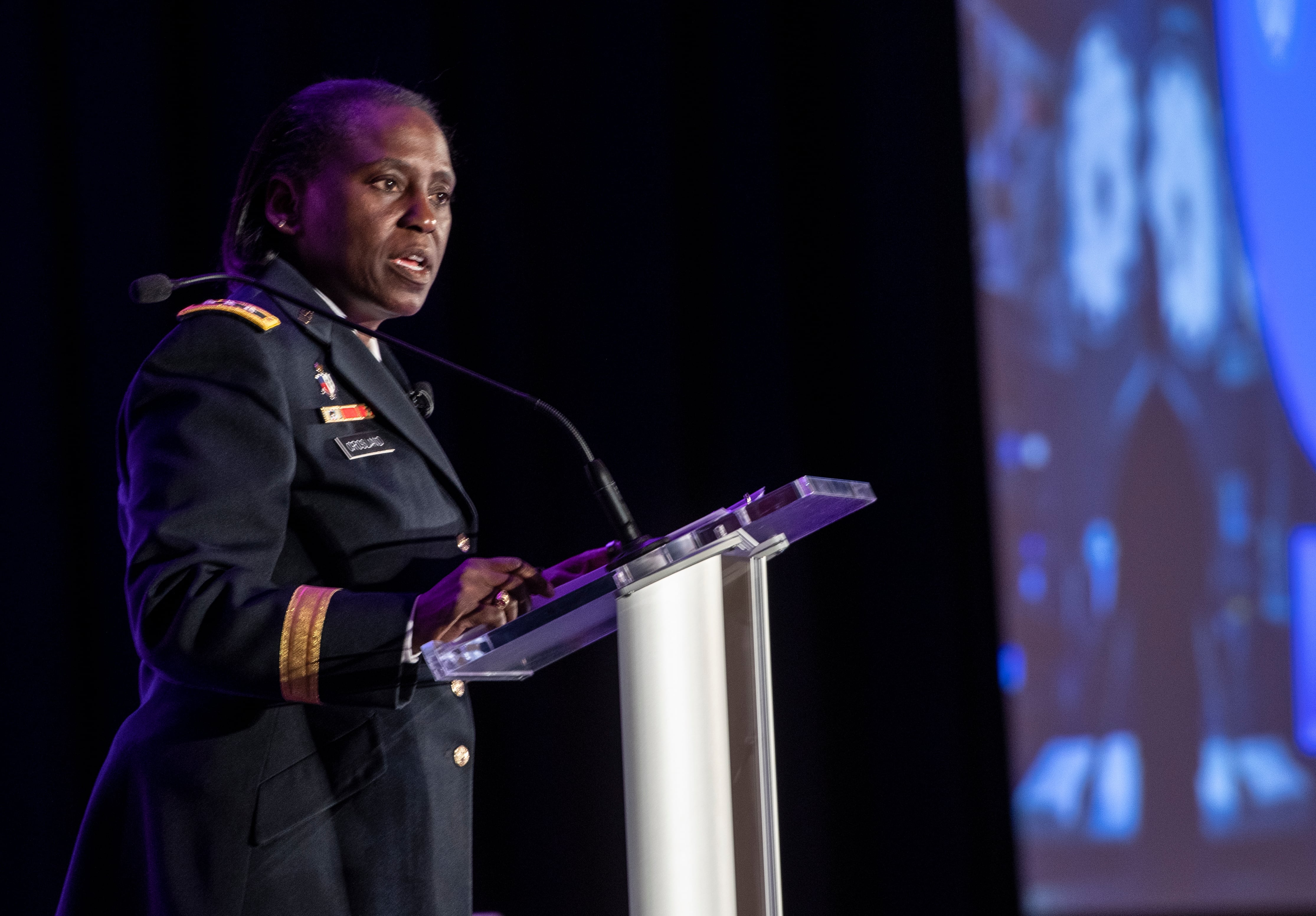Scoring a first class on your next physical or combat fitness test could get tougher as the Marine Corps looks to revamp its fitness and body composition standards. A 19:30 three-mile run would net a max score, but most male Marines would need 23 pull-ups for 100 points. The combat fitness test would be tougher, though body mass indexes would be relaxed and more leeway would be given to aging Marines.
Under the proposed plan, most males Marines will have to do 23 pullups in order to earn the max score on that portion of the PFT, up from 20 under existing rules. Women would need to do as many as 10 pullups to earn full points — that's in place of the 70-second flexed-arm hang currently required for the max score.
More ammo can lifts could also be required for first-class CFT scores. Men between the ages of 31 and 35 could need as many as 125 to get full marks. Women aged 26-30 could be required to do 82 to earn the full 100 points. Men currently need to lift a 30-pound ammo can overhead at least 91 times to earn the maximum score. Women need to do 61.
These are but a few of the recommended changes to the Marine Corps' fitness standards that will be presented to senior leadership on the first day of an executive off-site meeting set for April 13-15 at Joint Base Anacostia–Bolling in Washington, D.C. The recommendations, obtained by Marine Corps Times, will be presented by Lt. Gen. Robert Walsh, the commanding general of Marine Corps Combat Development Command and deputy commandant of Combat Development and Integration.
The off-site brief is just one step in a months-long review of the Marine Corps' fitness standards, said Maj. Anton Semelroth, a MCCDC spokesman. The review is being led by Training and Education Command officials. Their recommendations are due to the commandant for review on July 1, but the 28-page brief stated that a decision on proposed changes was needed by May 1 to give Marines time to modify training for the summertime CFT season. Final recommendations are due to the commandant by July 1, though the report said a decision on proposed changes was needed by May 1 to give Marines time to modify training for the July 1 CFT season.
"Input received from senior leaders during the off-site meeting will be incorporated and used to further refine TECOM's recommendations," Semelroth said.
Changing the score
Marine leaders The report found that "some current [fitness] standards are either not relevant, not challenging or not attainable," according to the briefing.
While some areas of the fitness tests like pullups and ammo can lifts are likely to get tougher, earning a max score on the PFT 3-mile run could easier.
Leaders evaluated 3,500 Marines, and found that only 4 percent could meet the 18-minute requirement for men and 21-minute mark for women needed to earn the full 100 points on that portion of the test. That's an indicator that the requirement is "not attainable," the report states. Now male Marines could be allowed 19:30 to complete the run and women 21:40. Max scores for the three-mile run fell into the latter category. The ability to get a max score with a 19:30 three-mile run (21:40 for women females) is arguably the most eye-popping recommendation. An evaluation of 3,500 Marines found that only 4 percent of Marines can meet the current 18- and 21-minute marks — a standard the report described as "not attainable." The recommendation gives added time to each five-year age group for men 26 and older, and women 31 and older.

A recruit sprints to the finish line during the 3-mile run portion of the Physical Fitness Test. Marines could be allowed more time to complete the PFT run.
Photo Credit: Sgt. Benjamin E. Woodle/Marine Corps
Marines could also be allotted additional time to complete the run once they meet a certain age in order to account for age-related declines in aerobic capacity.
Marines shouldn't Don’t rest easy just yet, though. While Though the recommended run times may seem to ease the standards, the proposal would actually see the number of Marines with first-class PFT scores drop from 87 to 70 percent, while second-class scores are likely to jump would increase from 11 to 20 percent. Third-class fitness tests scores and third-class could increase as well, up from 2 percent to 9 percent.
This is because Marines would need 230 points to get first-class PFT, which is a five-point increase from the current scoring system. They'd To earn a hey'd need and 195 points for second-class, which is a 20-point jump from the current standard. Therefore, a Marine with a low second-class score could easily be a PFT failure under the new rules. On the other hand, the minimum passing score would drop from 135 to 120, and Marines would have to complete the 3three-mile run in 27:30, which cuts 30 seconds off the current standard.
In addition, male Marines between 21 and 35 would have to belt out 23 pull-ups for a max score. The max drops by one for every five years of age after that, but never drops below 20 for men. Women would still be allowed to do the flex arm hang, but would be given little incentive to do so. Points for the FAH would max out at 50, while one pull-up is worth 51 points. Max pullups would vary by age, but top out at 10 for women 26 to 35.
Recommended changes to crunches were not addressed in the report, but Marines can expect a tougher scale as 89 of males and 70 of females can perform 100 crunches.
The same 70/20/9 scoring ratio is also recommended for the CFT, which the report called "not challenging." Currently, 93 percent of Marines score first-class, and nearly everyone else nabs a second-class score. While fewer than 2 percent of Marines max the PFT, more than 20 percent max the CFT. Not for long.
Examples offered in the report saw CFT scores drop by as much as 51 points under the recommended scoring scale. Only 10 percent of Marines would likely max the CFT under the new scoring system.
Data shows the ammo can lift to be the easiest event, as 93 percent of men and 80 of women max out. The proposal would see minimum repetitions for men double from 30 to 60, and the number needed for a max score increase from 90 to 120. For women, the minimum would increase from 20 to 30, while a max score would require 80 instead of 60 reps. Similarly, the minimum for male movement-to-contact would move from 4:10 to 3:45, while maximum would move from 2:45 to 2:35.
The recommendation would also make it easier for old salts to keep up with the scores of young fitness studs as it would increase from four to eight age groups for scoring purposes. This means a 26-year-old Marine — male or female — would need 115 crunches on the PFT for a max score. A but a 36-year-old man male would need 110, however, while a women in the same age group female of the same age would need 105. At age 41, the requirement for men drops to male would need 105 and and the female would need 100 for women.
The new design would start with Marines ages 17 to 20, then hit new age groups every five years following. Current age groups of 17 to 26 and 27 to 39 originated in 1956. The 40 to 45 age group was added in 1972, and the 46+ in 1997. No scientific basis exists for these age groups, according to the report.
"Proposed age groups recognize age related changes (linear age related decline in aerobic capacity, non-linear changes in strength) and in fitness in narrower age groups," the report said. "Addition of 17-20 age group allows for standards to be set appropriate for the least physically mature personnel (e.g. recruits)."
The review was driven by the a directive from Commandant Gen. Robert Neller that fitness standards be relevant, challenging and attainable. The review was led by Training and Education Command and supported by research agencies and the sports medicine community. The team referenced peer-reviewed studies, and lessons learned from sister services, allied services and law enforcement, officials said.
Lance M. Bacon is senior reporter for Marine Corps Times. He covers Marine Corps Combat Development Command, Marine Corps Forces Command, personnel / career issues, Marine Corps Logistics Command, II MEF, and Marine Forces North. He can be reached at lbacon@marinecorpstimes.com.





